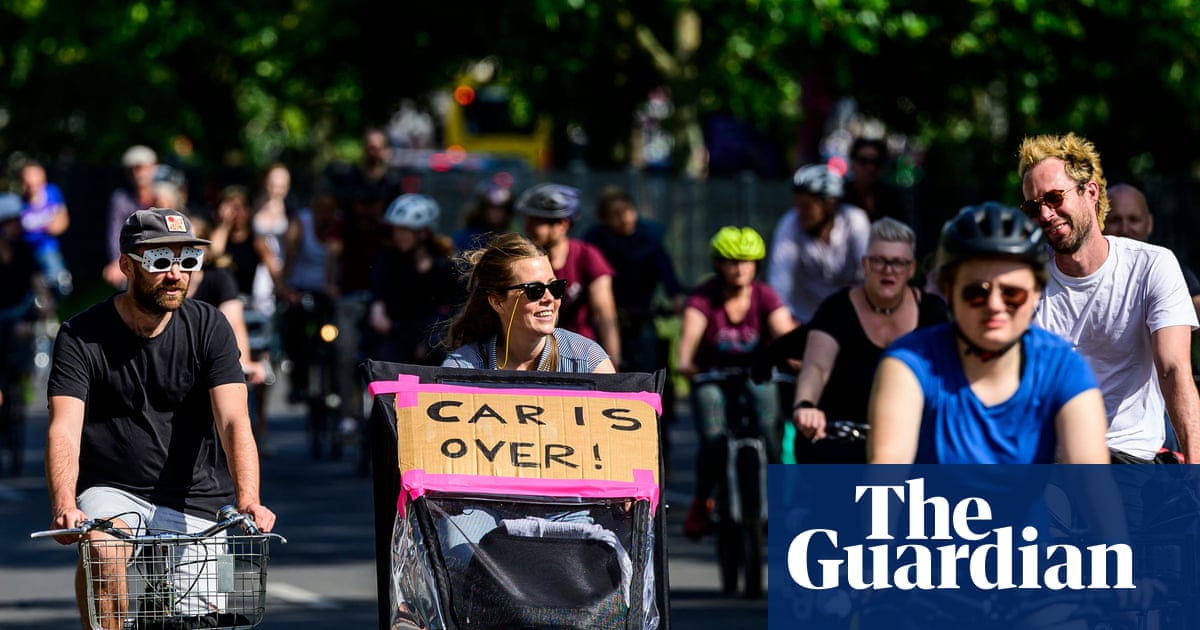
"In the rubble left by the second world war, Berlin seized a zero-hour opportunity to remake itself with a brave new vision of mobility, its citizens zooming down broad avenues and autobahns in roaring German-engineered cars. Tramlines, particularly in the capitalist west of the divided city, were ripped out to make way for motorists, and bicycles were muscled out of the main traffic arteries. The autogerechte Stadt (car-friendly city) was born."
"Fast forward 80 years and the dream of carefree individualised transport has regained a stronghold in the German capital. In fact, as cities like Paris, Amsterdam and Copenhagen embrace increasingly climate-, bicycle- and pedestrian-friendly policies, critics say Berlin is zooming full-throttle in reverse. It's not an unreasonable demand that Berlin actively ensures that everyone who is not surrounded by a tonne of metal feels safe in public spaces, Julia Schmitz, a community affairs reporter, wrote recently in the newspaper Der Tagesspiegel."
"Experts note Berlin does have a low ratio of cars per person, extensive but woefully underfunded public transport and a chaotic network of bicycle lanes that 15 years ago were seen as cutting edge in Europe. But striking the right balance of interests on Berlin's roads has proved divisive since the pandemic, and hammered a deep wedge through the ruling coalition, the same fractious alliance of the conservative Christian Democratic Union (CDU) and the centre-left Social Democratic party (SPD) that governs at the national level."
Postwar reconstruction remodelled Berlin as a car-centric metropolis, removing tramlines and sidelining bicycles to create the autogerechte Stadt. Eighty years later the city has seen a resurgence of individualized motor traffic while other European capitals prioritize cycling, walking and climate measures. Berlin retains a relatively low car-per-person ratio, extensive but underfunded public transport, and an aging, chaotic bicycle-lane network. Road-use debates have sharpened since the pandemic, provoking political splits within the ruling coalition and public protests tied to motorway projects and nightlife preservation. Electoral shifts reflect backlash against restrictive, car-critical policies.
Read at www.theguardian.com
Unable to calculate read time
Collection
[
|
...
]